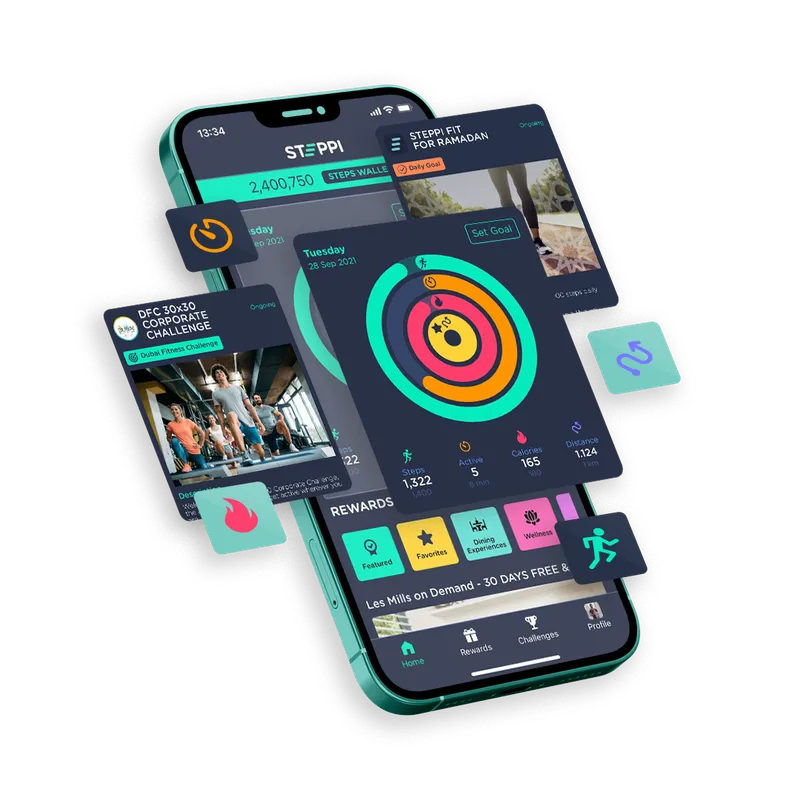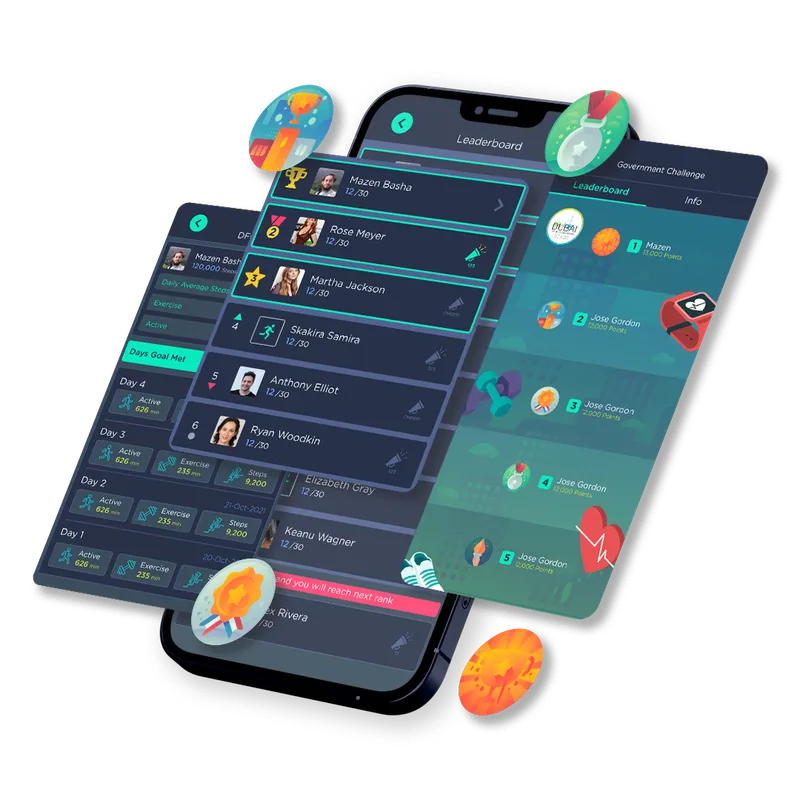This former Fitbit exec is building for workforce well-being
Dubai-based STEPPI builds programmes to engage employees in wellness activities and positive social connections and provides meaningful rewards that deliver data-driven behavioural change.
Joe Franklin, the co-founder of healthtech startup , was a former Regional Sales Director-Middle East for Fitbit. The wearable fitness brand is also known for Fitbit Health Solutions, which provides app-based health and fitness programmes to corporates for their employees.
Like many tech companies, Fitbit, too, collected data for its operations. But it could not adhere to the UAE’s data regulations, which required companies to house all the data within the country.
Seeing an increased interest from corporates and the government, Joe saw it as an opportunity to start up in the space.
“There was an increased interest from the government sector. During the same time, it so happened that Fitbit couldn’t adhere to the UAE’s data regulations… I believed this had a strong market, so I looked for technology solutions within the UAE that could possibly provide these solutions,” Joe tells YoutStory Gulf Edition in an interaction.
Along with Milos Savic, a former Brand Manager at Fitbit, Joe started STEPPI in 2019 out of Dubai. Today, Milos is no longer a part of STEPPI.
The company launched its product in February 2020, which builds programmes to engage employees in wellness activities and positive social connections and provides meaningful rewards that deliver data-driven behavioural change.
STEPPI works on building engaged corporate wellness programmes for organisations of all sizes, ensuring a mix of consistent effort, support, and strategy.
Today, the COVID pandemic has put health and wellness at the forefront, and several senior leaders and managers are focused on ensuring the overall wellness of their workforce.
“We built STEPPI to solve the issue of inactivity among employees. There are rewards, community programmes, and other incentives,” says Joe.

Middle Eastern sovereign wealth funds doubled investments in western economies in 2022
What does the startup do?
The startup begins with planning, where it gathers the information from its client and understands and agrees on the objectives and explains to them the desired outcomes of the programme.
STEPPI also helps set specific key performance indicators (KPIs) to help track the progress. offers multiple programmes that corporates can add as per their requirements.
“We have multiple activity challenges that can be run between teams with a goal that helps towards an active workforce,” says Joe.
Its team of six works with different stakeholders to run different community initiatives. For example, STEPPI was a partner for the Dubai Fitness Challenge in 2020 and 2021.
STEPPI has most of its contracts in the UAE and Saudi Arabia, among other Gulf Cooperation Council (GCC) countries.
Joe adds Dubai is a very pro startup city, and getting clients in the region is easy. Further, getting access to government contracts is easier. In 2021, the startup raised $2.5 million in an undisclosed corporate funding round.
In the UAE, STEPPI competes with several fitness apps like Impulse, Wearfit Pro, and BetterMe, among others.
According to a Ken Research report, the UAE fitness market is expected to reach over $600 million by 2025. Further, the market for online fitness is predicted to touch $36.5 million by 2025.

William Bao Bean, of SOSV and Orbit Startups, on running a business in the GCC region
Building the differentiator
According to Joe, having a prior understanding and experience in the fitness software segment and realising the clients’ demand gave STEPPI an edge over its competitors.
“When we launched, we were relatively new and had to wait for consumer demand to catch up. But now, that is shifting,” Joe says.
He adds the company looked at every solution available in the market and built a strong reward points system to motivate users.
In 2023, the startup aims to go deeper into the business-to-business (B2B) market as it aims to run a stronger revenue path.
“What helped us was that we already had experience in the fitness software segment, and we already knew what the clients were looking for. We built the product based on what they were truly looking for and focused on a community and corporate aspect,” adds Joe.
On the community side, the team doesn’t charge anything to the end consumers but charges its corporate partners. For example, the startup has partnered with Abu Dhabi Public Health, with whom it did a billion steps challenge. The number of participants in the challenge is undisclosed.
On the corporate side, its clients pay based on the number of employees using the platform and the length of the programme—which starts from AED 9 to AED 10 for short programmes per user per month.
“Today, people are looking for more fitness options, and our focus is to grow stronger in the region,” says Joe.
Edited by Suman Singh







